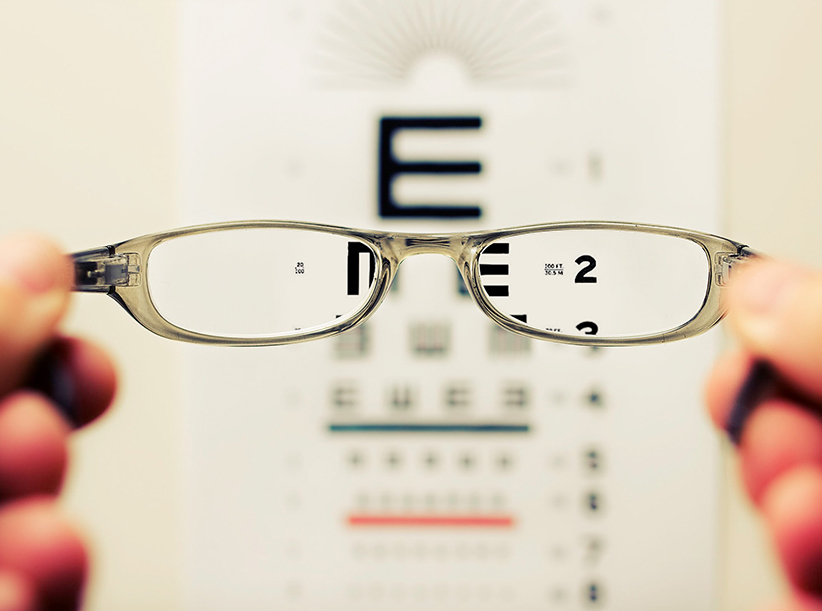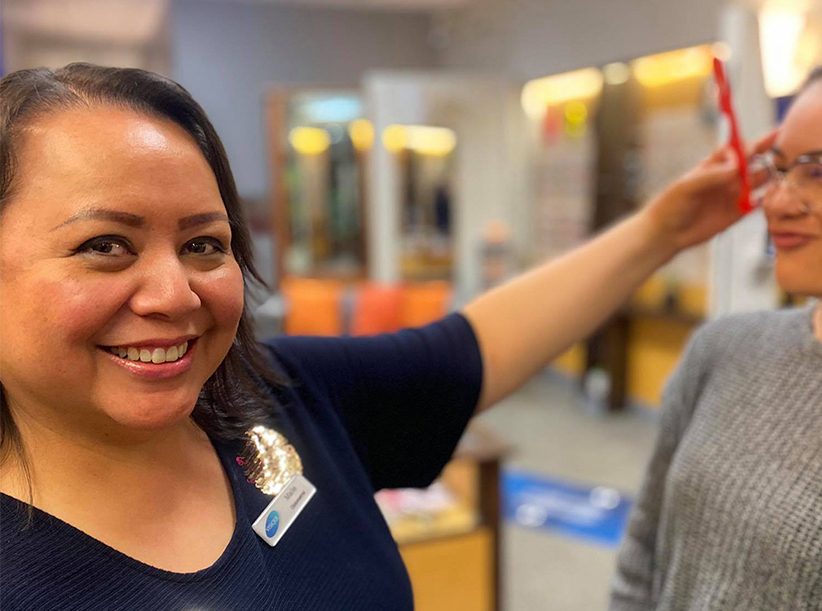Your Guide to Eye Tests

As one of the best measures you can take to protect and preserve your eyesight, eye tests are an essential part of any eye care routine.
But how do they work? How often should you get them, and what can you expect during the process?
To help you see the eye test process more clearly, we’ve thrown together a handy guide covering some frequently-asked eye test questions.
Why are eye tests important?
First up, why are eye tests so important? Your eyes reveal a lot about what’s going on inside, from your emotional state to your physical health and wellbeing.
A regular eye check can help to detect issues like cataracts, glaucoma, macular degeneration, or even health conditions like diabetes, high cholesterol and high blood pressure.
In addition to giving you some much needed insight into your personal health, having regular eye tests will provide you with peace of mind and confidence that your health is all under control.
Are there different types of eye tests?
There are a number of different eye tests you might undertake when checking on your eye health. These will depend on the results of a vision test, your medical history, any previous conditions, or what symptoms you may be experiencing.
On the whole, eye tests can be broken down into two categories, vision tests and eye examinations:
Vision Test
Ever wondered what is the most common eye test? Welcome to the standard vision exam. This is a relatively quick, easy and an essential first step in gauging your eye health.
A standard vision test is what most assume an an eye exam involves, where your optometrist will test your vision by having you stand at a distance to read the Big E or Snellen chart. Your optometrist will also test your reaction to light, coordination, the reflexes of your eye muscles and visual field.
This test will give your optometrist a keen understanding of whether any eye issues are present, from dry eyes to blurry vision, or more serious conditions. From here, they’ll decide whether you require a more in-depth eye examination.
Eye Examination
If an eye examination is required, the type of examination will depend on what conditions your optometrist is testing for. These tests can range from Visual Acuity and Ocular Motility to Glaucoma and eye pressure or Slit Lamp Examinations for conditions like corneal ulcers, cataracts and more.
Your optometrist will also review your medical history, lifestyle and help you find the treatment and management options that are right for you.
What questions do opticians ask?
If you’re looking to prepare for your eye test and wondering what kind of questions your eye specialist will ask that may need to prepare for, don’t worry. Eye tests are straightforward and we work hard to ensure you’re comfortable and guided throughout the process.
For those that are curious, we’ll likely cover your general eye health, any problens you are having with your vision, and your family history to rule out any hereditary problems you may have, or be at risk for.
We’ll also be interested in your daily lifestyle, and like to suggest some great practices you can incorporate on a daily basis to keep your eye, and overall health in the best shape possible. Whether it’s general eye care tips, dietary or supplementation recommendations, we’ll help you find a routine you can stick to, and one your eyesight will thank you for.
We’ll also be interested to know about your routine and how your vision relates to your daily life, and occupation. These questions help us to tailor eye test and treatment programs that are right for you.
What should I know before getting my eyes checked?
Before getting your eyes checked, it pays to adhere to some best-practice care tips so your eye test is as accurate as possible. In addition to checking out some handy guides like our recent blog posts, you may want to:
Avoid eye strain
Ensuring your eyes are well rested leading up to an eye exam can increase your overall comfort and decrease fatigue levels after the testing exercises. Aim for a good nights sleep and limit strenuous activity prior to your exam.
This may include any heavy screen time, so morning appointments can be a great idea if you work at a computer or digital screen of any kind.
Bring your glasses or contacts
If you are using corrective or protective glasses or contact lenses of any kind, it’s handy to have them on you when you come in for your appointment. We may wish to test the strength and performance of your current eyewear and gauge whether or not a change is required.
Post examination, you may experience some light sensitivity if eye drops have been used for pupil dilation. Keeping a pair of glasses on hand to protect your eyes is a great idea, in case you are heading out into the sun after your exam.
Avoid coffee and alcohol
Heavy caffeine use prior to an eye exam is also inadvisable. Caffeine can raise blood pressure, swhich if significantly raised could alter the outcome of your eye examination.
Similarly, alcohol can impact blood pressure, in addition to contributing to dry or irritated eyes. Try to avoid drinking significant amounts the night before and the day of your eye test.
But most importantly, relax. Eye tests are standard procedures and while health check ups of any kind can be daunting experiences, with Eye Spy, you’ll be in the best of hands.
How frequent should eye tests be?
So, just how often you should get your eyes examined depends on a number of factors, like your age, health status and eye condition.
The American Academy of Ophthalmology (AAO) generally suggests the following frequency for eye examinations based on age:
- 20s and 30s: every 5-10 years
- 40 to 54: every 2-4 years
- 55 to 64: every 1-3 years
- 65+: every 1-2 years
If you have a health condition or existing problem, you may need to visit more frequently. You might belong in this category if you:
- Wear corrective lenses
- Have a disease or illness associated with eye disease
- Have a family history of vision problems
It also goes without saying that if you have sudden loss of vision or an acute injury to the eye, you should see your optometrists or attend an emergency clinic right away.
For children, the following recommendations provide a rough guideline:
- Attend an initial screening between 6 and 12 months of age
- Regular eye health and vision screenings during infancy to detect any issues while eyes are developing
- Examinations every 1-2 years for school age children
In saying this, these are just general guidelines. The best way to keep on top of your unique requirements is to discuss your condition with your optometrist and plan your examination frequency together.
How long does an eye test take?
While a vision test is relatively short in duration, an eye examination and the more in-depth procedures among them can take anywhere from 30 minutes, to an hour, or more. Your optometrist will be able to advise you on the duration depending on your procedure, and schedule an appropriate time to minimise disruption to your day.
These are just a few of the frequently asked questions about eye tests we receive. If you have questions around affordable or cheap eye exams, eye exam and glasses enquiries, or would simply like to chat about the best eye test regimen for your unique circumstances, we’re here to help.
Click here to book online, or contact us for more information. We’re proud to offer our comprehensive eye test Palmerston North wide to patients of all ages, and love making the eye examination experience as hassle-free as we can for you.
Thanks,
The Eye Spy Team
